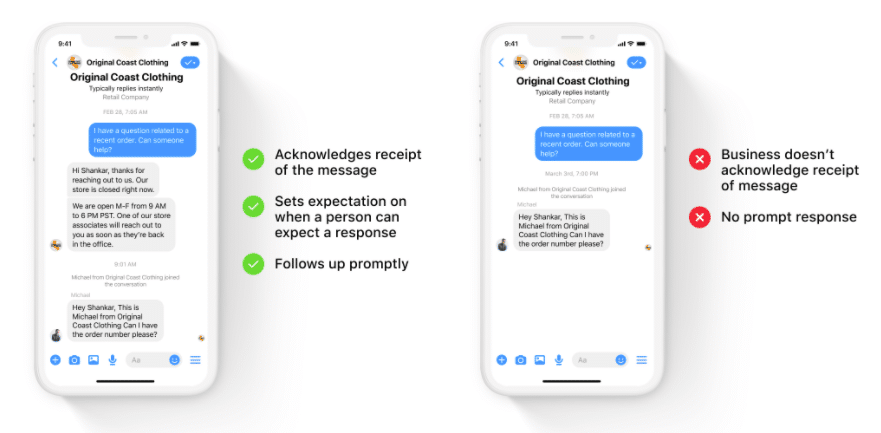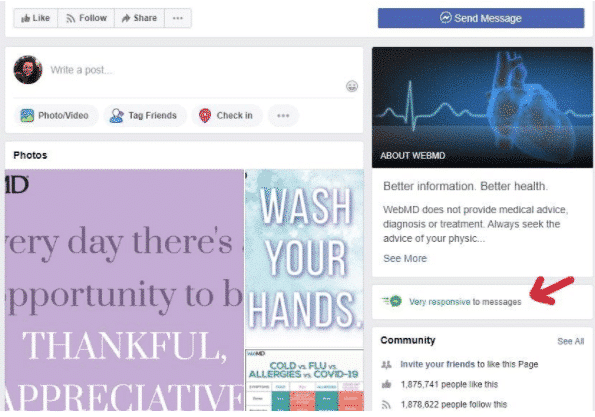You are missing out not to use Facebook Messenger to engage customers and prospects. According to research from Forbes, two-third of customers would like to connect with brands via messaging apps.
As the number of active monthly Facebook users in the last quarter of 2019 was nearly 2.5 billion people, Facebook Messenger is the best place where you can connect with your customers and grow your business.
Here are some numbers that you should consider:
- There were 70 million businesses with a Facebook presence in 2017.
- According to a recent survey, 83% of women-owned small and mid-size businesses are using Facebook Messenger to engage customers.
- There are just 31% of the total businesses that are using Facebook Messenger.
Some brands are using Facebook Messenger to build loyalty and grow sales. However, millions more aren’t. If you want to set your brand apart, this is a prime opportunity.
In this post, we’ll explain how Facebook Messenger can profit your business—and the principles of etiquette for this essential channel.
Why use Facebook Messenger for business?
Customers see Facebook Messenger as a direct, private line to the heart of a business. It’s also an effective way to get a fast, personal response. In this setting, your business can serve individuals effectively, build relationships, complete transactions, and set the stage for future sales.
With Facebook Messenger, you can’t only interact customers via personal messaging, but also buy advertisements to attract customers in or reengage people who’ve already contacted you. Currently, there are two kinds of Facebook Messenger ads:
- Click-to-Messenger advertisements—A call to action appears on the brand’s Facebook page. When customers click on through to Messenger, a conversation starter appears. It normally contains a suggestion that encourages the consumer to take the next step.
- Sponsored message—A sponsored message appears in the Messenger inbox of a consumer who has interacted with the brand’s Facebook page. These advertisements can take numerous types
By taking advantage of Facebook Messenger through great advertising and customer service, you’ll build a loyal brand community that’s receptive to your offers and more inclined to spend.
10 etiquette mistakes to avoid on Facebook Messenger
On Facebook Messenger, you have only one chance to make a first impression with your customers. To earn a consumer’s belief, you’ll have to show sincerity, care, and respect. For starters, you’ll need to keep away from these 10 Facebook Messenger etiquette mistakes.
1. Not having an automatic greeting or response
If somebody sends you a message, don’t greet them with silence. Friendly text should appear as soon as the message thread is opened. Use instant replies to acknowledge receipt of a message, say “thanks,” and set expectations for the way soon a live person may reply.
You may personalize your greeting by including the consumer’s name. You can even provide contact info so the consumer can reach you on another channel.
For a step-by-step guide to creating instant replies, read our Facebook Messenger complete guide for business.
Source: Facebook for developers
2. Taking too long to reply (or not replying at all)
Having a question or request go unanswered by a business is disappointing. And for a lot of customers, it’s a deal-breaker.
You’ll have to act quickly once a consumer sends a message and receives an immediate response.
One factor to remember: as soon as you open a message in Facebook Messenger, the sender can see that it’s been seen. Don’t open messages until you’re ready to reply, however, ensure you do so within a few hours.
Businesses that have a response rate above 90% and response times under 15 minutes can earn a “very responsive” badge. It’s an effective way to show your brand is caring and customer-centered.
To earn the badge, start by following these Facebook-recommended practices.
If no one is available to reply immediately, schedule an automated away message for the period your Facebook Messenger might be closed for business.
3. Not providing context
It is important to send timely replies and here is what your messages reflect:
- What led the user to contact you
- Whether they’ve interacted with the brand page or purchased before
- Whether the user’s message is related to an earlier exchange
Any message that lacks context might seem tone-deaf. It could also create unnecessary friction for someone who’s trying to get help or complete a purchase.



